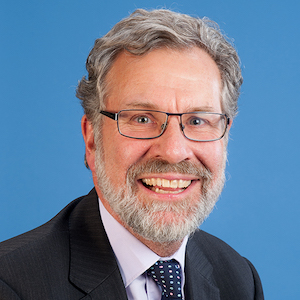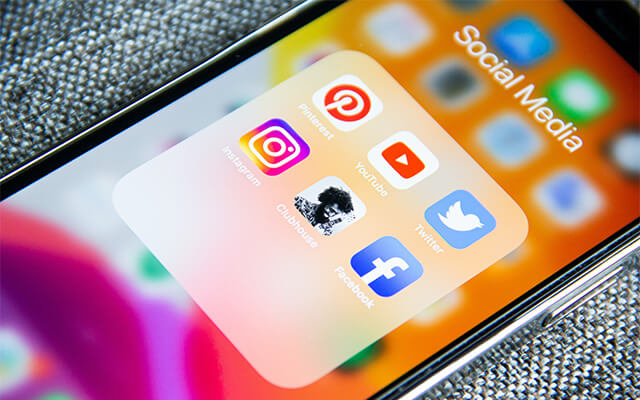-
Completely agree "The point is not to judge the quality of content, currently. It's to realize that (1) our simple brains are defenceless against the unlimited power of algorithmic manipulations, future or even extant. Our dopamine, adrenaline, etc wiring cannot evolve, and certainly not as fast as software does. And, therefore, (2) if someone can profit by hijacking the attention (or beliefs or preferences or actions) of (young) people, we can expect that exploitation to arise. So where are the protections? Secondly, the incentives for communication in algorithmic environments can be pernicious. If the algorithms give you an audience based on the attention-getting power of your message, rather than on how good you feel hearing or processing it, then discourse can become radicalized if a larger audience is a reward or is rewarded. Together, these risks mean that it is possible/likely/inevitable for people's minds to be manipulated to ends that are entirely disconnected from their self-motivated wellbeing. It means we may be radicalized, frightened, desirous/invidious, or self-critical in unhealthy ways. I'm sure such systems can work, but without careful limits to how those algorithms work, there is 100% certainly risk to our ""mental health"". "
Professor Chris Barrington-Leigh
Professor, McGill University -
Neither agree nor disagree There appears to be some preliminary evidence this may be the case. The American psychological association has identified gaming addiction as a potential malady. As to the extent of the problem, this is yet to be agreed upon; it is only just over a decade since social media access devices and smart-phones, that are often used to access social media, have become ubiquitous.
Doctor Tony Beatton
Visiting Fellow, Queensland University of Technology (QUT) -
Neither agree nor disagree Social media has positive aspects (social relationships, entertainment, education) and negative aspects (addiction, misinformation, substituting for in-person interaction). The balance of these positive and negative aspects on well-being varies substantially across individuals.
Professor Daniel Benjamin
Associate Professor of Economics, University of Southern California -
Completely agree We are starting to see evidence that social media has negative well-being consequences, partly through facilitating anonymous mobbing and a deterioration of how we interact with each other, but also through our inborn tendency to jump on positional treadmills and compare ourselves with others. Carefully curated profiles that omit the dreary boring reality of our lives then create opportunities for dissatisfaction when one mistakenly compares one's own mundane life with the glossy online version of friends and acquaintances. Carefully engineered websites that exploit our psychological quirks lure us into compulsively checking for news and updates, making us nervous and anxious of FOMO (fear of missing out). I am not a fan.
Professor Martin Binder
Professor of Socio-Economics at Bundeswehr University Munich -
Neither agree nor disagree Social media is a broad concept and it is thus difficult to assess its impact. In addition, social media can be used in different forms. Evidence points towards a negative effect of social media on young people, probably due to issues such as social pressure, comparison (comparing to not real lives), and physical isolation. The long term effects on young people, however, are still to be seen. Young people that are now in their teens or early twenties might think that their life after studying will look similar to the ones portrayed in social media, which tends to over expose the hedonic happy moments. This makes younger people believe that hedonic happiness is possible and desirable. Nevertheless, social media has allowed us to have access to information that was difficult before (e.g., becuase it was controled by those with power), which should increase citizen empowerment. Of course, social media is also controlled by the most powerful, as usual.
Professor Ada Ferrer-i-Carbonell
Professor of Economics, IAE-CSIC -
Completely agree More difficult to get natural resources and food
Professor Bruno Frey
Visiting Professor of Economics and Wellbeing, University of Basel -
Completely agree There are three separate mechanisms. One is that social media is fast-distraction-based, preventing children from learning deep focus. The second is that social media encourages quick social comparisons based on visuals and word-based value signalling, which is detrimental to poorly visible investments and skills important in life. The third is that social media is addictive and at the expense of in-person socialising, leading to a lack of deep social connections, physical needs, and less resilience to bullying.
Professor Paul Frijters
Professorial Research Fellow, CEP Wellbeing Programme, London School of Economics -
Neither agree nor disagree Many people, including the young, successfully use social media to enhance their opportunities, connectedness and wellbeing. For instance, people release music via Youtube while people with anxiety may feel an ability to connect with people that they otherwise would be too anxious to socialise with. Others find the comparisons (and, sometimes, bullying) that social media engenders to be harmful. It is therefore hard to generalise about the effects of social media on mental health as mental health may improve for some and worsen for others.
Professor Arthur Grimes
Chair of Wellbeing and Public Policy, School of Government, Victoria University of Wellington -
Agree "People (and even other primates) are exquisitely tuned to social comparisons. Prior to the social media era, social comparisons were based largely on direct observation of peers, limiting opportunities for distortion. The average person was, therefore, presented with a balanced set of comparisons. Social media changed this equilibrium by enabling people to present a distorted view of their life: accentuating the positives and hiding the negatives. Everybody knows this, but our emotional brain finds it difficult to correct for this distortion. As a result, the average person feels as if the large majority of their peers are better looking, happier, and more socially successful than they are. This is a problem, because unfavourable comparisons reduce subjective well-being and can cause mental health problems. Growing research shows that this is exactly what is happening now, particularly among teenagers. While the main problem is the distortion in peer comparisons, social media also creates unrealistic expectations as for the quality of life more broadly: how vacations look like, what love life is like, and even how home cooked dishes should look like. Since expectations play a key rule in how people evaluate their own experiences, unrealistic expectations lead to disappointment and increase the risk of mental health problems. "
Professor Guy Mayraz
Lecturer, University of Sydney -
Completely agree The effect of the use of social media on people's well-being is difficult to ascertain because both of them are affected by individual's skills and traits, and causality can go both ways. Indeed, studies based on correlations find ambiguous results (see the survey of surveys Valkenburg 2020). However, if the use of social media is properly instrumented, the negative effect emerges quite clearly. E.g., Braghieri et al. (2022) leverage the natural experiment of the introduction of Facebook across US colleges staggered over time, and find that, after several semesters, students have increased symptoms of mental health problems, especially depression. By using a randomized experiment in which the use of Facebook is restricted, Allcott et al. (2020) find consistents result valid for the general population. Other consistent evidence emerges for the case of the use of Internet, which has greatly facilitated the social media use (Golin 2022 for Germany; Donati et al. 2022 for Italy). The main reason that explain the negative effects seem to be the enhanced social comparison (Braghieri et al. 2022), which deflates well-being, and a worsening of socialization (Allcott et al. 2020; Golin 2022).
Professor Maurizio Pugno
Full Professor of Economics, University of Cassino -
Agree There does seem to be mounting evidence that greater exposure to social media is linked to a decline in mental health, especially among young people. I point in particular to the experimental evidence reported in a series of papers published in the American Economic Review (Alcott 2020, 2022; Braghieri et al. 2022), but there are others (eg Mosquera et al. Experimental Economics 2020).
Professor Mark Wooden
Professorial Research Fellow and Director of the HILDA Survey Project, Melbourne Institute: Applied Economic and Social Research, Faculty of Business and Economics, University of Melbourne -
Completely agree Recent evidence by Braghieri et al. (2022) shows convincing evidence that there are negative impacts of social media on the mental health of college students, largely due to the effects of comparing ourselves with others.
Professor Stephen Wu
Professor of Economics, Hamilton College -
Neither agree nor disagree Not yet, but possibly in the longer term as a result of stagnating globalization
Professor Ruut Veenhoven
Professor of Sociology, Erasmus University Rotterdam

In February 2023, members of the World Wellbeing Panel were asked for their views on two statements relating to the relationship between the use of social media and wellbeing.
The two statements were as follows:
Statement 1: The generalized use of social media (Meta, TikTok, YouTube, etc.) puts mental health at risk, especially that of young people.
Statement 2: There are policy interventions that could ensure that social media is designed and used to promote well-being.
Response options for each statement were: “completely agree”, “agree”, “neither agree nor disagree”, “disagree”, “completely disagree”.
The generalized use of social media (Meta, TikTok, YouTube, etc.) puts mental health at risk, especially that of young people.
There are policy interventions that could ensure that social media is designed and used to promote well-being.
-
Completely agree "Given that machine learning can take human manipulation from powerful to nearly perfectible, we need strong limits. There are two ways in which the incentives need immediate regulation. First, targeting ads to individuals’ profiles should simply become illegal. Targeting profit-driven ads to the context is fine, but to an individual is too much for our brains. Secondly, aside from ads, if the environments are designed to reward shocking, negative or otherwise abnormal content, they can cause harm. There are some obvious constraints to put in, but what is critical above all in getting to the right policies is transparency: (a) selection/feed algorithms should be openly published or simply carried out by fully open source code. (b) Secondly, they should be simple. (c) Thirdly, they should strongly privilege or be entirely driven by subjective responses (or possibly narrative reactions). That is, rather than judging us by our attention in the past (and that of others), they should judge us by how we explicitly rate/assess how much we like each piece of content. Our attention level reflects fear, anxiety, etc, as much as intellectual interest, positive feelings, and growth. These three principles (a,b,c above) must be fundamental for algorithmic control of social media feeds. However, the world (technology) is changing too fast for ""policy interventions"" to be enacted before they are obsolete. We need new governance systems. In the very near future, the feed-choosing-algorithms will be replaced by content-creating algorithms (like the new language model based systems). Openness /transparency in this domain is critical like few things have been so far in human history. "
Professor Chris Barrington-Leigh
Professor, McGill University -
Agree Focussing on the effect of social media on young minds. Many schools have decided that the problem is the distraction from the mobile device, not necessarily the content viewed on them. Educators are now recommending that students not be exposed to mobile devices before age 13? Whether this is the correct age, or, whether we should ban children's access to these devices is yet to find strong support/evidence. Much like pornography, what children view or find interesting is a matter of personal taste, and, personal taste could be seen as a reflection of education. Many of us choose to not view pornography, or social media for that matter, because we have much more important things to do with our time. Prohibition does not work, education does !
Doctor Tony Beatton
Visiting Fellow, Queensland University of Technology (QUT) -
Agree Policing misinformation is helpful.
Professor Daniel Benjamin
Associate Professor of Economics, University of Southern California -
Disagree No, much of how technology such as social media has changed and disrupted society happens so that regulation lags behind (as with all innovation, interventions and regulations come after the fact, but I don't see our societies having caught up with the downsides and deleterious effects of social media yet). While aware that this may not be an intervention for everyone, I can recommend to try out the deep sense of tranquility that comes from permanently deleting your social media accounts and adopting a lifestyle of "digital minimalism" (Cal Newport) :)
Professor Martin Binder
Professor of Socio-Economics at Bundeswehr University Munich -
Disagree Policy interventions that would restrict the use of social media (both as viewers, but also as showers of happy lives) would be very dangerous and could lead us to very undesirable situations. However, policy makers can encourage a healthy use of social media through campaigning. Educators should spend time talking about real life and the importance of a satisfying life, which might consist of hard moments. As it happened with television, many children and young people are left alone at home on the afternoons (specially from those families who cannot afford day care or outside-school activities). It would be interesting to study the correlation between social media use and education or income. After all, social medica consumption is cheaper than theatre, movies, eating out or traveling.
Professor Ada Ferrer-i-Carbonell
Professor of Economics, IAE-CSIC -
Completely disagree Scientific process and therewith innovations will not end
Professor Bruno Frey
Visiting Professor of Economics and Wellbeing, University of Basel -
Completely agree There are policy interventions, but they are invasive and would go against the commercial interests of the companies involved. At the low end of the policy spectrum one can discourage parents from using social media as child-minding, and to run media campaings that put a stigma on its use. More invasive possibilities include disrupting the internet on particular days of the week (internet-free Sundays) or banning social media and mobile phones from schools and workplaces. At the extreme end of the policy spectrum one can classify many forms of social media as a hard drug and treat its consumption and promotion accordingly. Of course in the present political environment these possibilities are still considered outlandish, but I do think our societies will move towards these positions once the true extent of the damage done by social media distractions get realised. I also think the first movers in banning social media are the richests and best educated families who choose to shield their children.
Professor Paul Frijters
Professorial Research Fellow, CEP Wellbeing Programme, London School of Economics -
Disagree "In theory, social media firms and governments may attempt to control harmful impacts (such as bullying) of social media, but in practice the decentralisation of this 'marketplace of ideas' (a notion characterised by John Stuart Mill) makes successful intervention extremely difficult and also fraught in a liberal society. "
Professor Arthur Grimes
Chair of Wellbeing and Public Policy, School of Government, Victoria University of Wellington -
Disagree While it may be possible to limit the harm caused by social media, I am not aware of any convincing policy interventions that could eliminate it entirely, so that it is "designed and used to promote well-being"
Professor Guy Mayraz
Lecturer, University of Sydney -
Agree "Policy interventions in this matter could be grouped into four types (Pugno 2022): restricting the use of social media by parents and schools in the case of adolescent users; organising courses and teaching for a wise use of social media; regulating social media according to healthier and more civic principles (possibly based on scientific data); directly launching new social media under the control of public ownership to ensure those principles (Castelnovo and Florio 2020). Unfortunately, the easier the policy intervention is to implement, the more difficult it is to be effective. Specific difficulties are: meddling in the parental education of children; resisting the lobbying of Big Tech; countering the trend of radicalization of opinions induced by social media (see Allcott et al. 2020) that can hinder forward-looking policies. Allcott et al. (2020) The welfare effects of social media, American Economic Review 110 (3): 629–76 Braghieri et al. (2022) Social Media and Mental Health, American Economic Review 112 (11): 3660-93 Castelnovo P, Florio M (2020) Mission-oriented public organizations for knowledge creation. Routledge Handbook of State-Owned Enterprises, Routledge, pp. 587-604 Donati et al. (2022) Lost in the Net? Broadband Internet and Youth Mental Health, IZA DP No. 15202 Golin, Marta (2022) The Effect of Broadband Internet on the Gender Gap in Mental Health: Evidence from Germany, Health Economics 31: 6-21 Pugno, M (2022) Well-being and Growth in Advanced Economies, Routledge Valkenburg et al. (2020) Social media use and its impact on adolescent mental health, Current Opinion in Psychology 44:58–68 "
Professor Maurizio Pugno
Full Professor of Economics, University of Cassino -
Neither agree nor disagree Not my area of expertise, so difficult for me to comment. I just note that well intentioned government interventions could just as easily harm individuals as help. Social media is now used by billions of people every day. It is a major source of news and information, and a major vehicle for staying connected with family, friends and wider community networks. Interventions that restrict access to social media will thus cause a lot more people to feel worse off than it makes better off.
Professor Mark Wooden
Professorial Research Fellow and Director of the HILDA Survey Project, Melbourne Institute: Applied Economic and Social Research, Faculty of Business and Economics, University of Melbourne -
Neither agree nor disagree While I believe that there is strong evidence of the deleterious effects of social media on mental health, it is less clear how policy would restrict usage and ensure that it is designed to promote well-being. Some advocate for stricter age requirements, but young people will be able to get around these rules too easily.
Professor Stephen Wu
Professor of Economics, Hamilton College -
Disagree Average happiness has increased gradually in most modern nations over the last 50 years. This growth in happiness was driven by many factors, such as improved medical care, psycho-therapy, rising material affluence and ever greater possiblity and ability to choose for a life that fits you. These developments are likely to continue in the next 20 years.
Professor Ruut Veenhoven
Professor of Sociology, Erasmus University Rotterdam
Our panelists’ show no disagreement with the first question, while some agreed or completely agree with the first statement, the rest neither agree or disagree. In contrast, our panellists differed on their answers to the second statement: 5 (completely) agreed, 3 disagreed, and 3 neither agreed nor disagreed.
For the first statement, 7 of our 11 respondents completely agreed (5) or agreed (2), while 4 were neutral (no-one disagreed or completely disagreed).
The strongest argument for agreement focuses on social comparison (Grimes, Wu, Frijters, Pugno). Specifically, social media does not induce people to compare real lives, while our emotional brain finds it difficult to correct this distortion (Barrington-Leight, Ferrer-i-Carbonell), so that unrealistic expectations may arise (Mayraz). The second mentioned argument points to the deterioration of socialization as long as online interaction substitutes face-to-face interaction (Benjamin, Frijters, Pugno). This may enhance the fear of missing out (FOMO) (Binder), physical isolation (Ferrer), and bullying. (Grimes, Frijters). The third argument is the addiction to the use of social media (Benjamin, Frijters), such as, in particular, the compulsively checking for news and updates (Binder).
Some panelists observe that digital platforms carefully engineer social media in order to exploit human psychological vulnerability (Binder, Barrington-Leigh, Ferrer).
The cited evidence (by Pugno, Wooden, Wu) in support to the negative effect of the use of social media on people mental health, especially that of young people, includes several economic studies (Braghieri et al. 2022, Allcott et al. 2020, Golin 2022, Donati et al. 2022, Mosquera et al. 2020), while other studies show ambiguous results (Valkenburg 2020).
The reasons for this ambiguity may be due to the heterogeneity of people in the use of social media, and to the real possibility of exploiting some useful options made available by such technological advance, concerning, e.g., social connections, entertainment, and education (Benjamin, Grimes). For these reasons, some panelists would prefer to wait for long-term effects for a definitive assessment (Beatton, Ferrer-i-Carbonell).
For the second statement, 5 completely agreed or agreed with the statement, while 3 disagreed (3 neither agreed nor disagreed).
The possible policy interventions are varied, but problems are many. Restrictions on the use of social media are not effective because the world technology is changing too fast (Barrington-Leigh, Beatton, Binder), and young people will be able to get around these restrictions too easily (Wu). Policy interventions that would restrict the use of social media have been also considered dangerous (Ferrer-i-Carbonell, Wooden).
A second type of policy intervention addresses the regulations of providers of social media according to some principles, such as regulation on ads, transparency, and algorithms that should judge us by how we rate contents rather than by our attention in the past (Barrington-Leigh).
A third type points to educate especially young people in the use of social media through campaigns among parents, schools (Beatton, Ferrer-i-Carbonell, Frijters), up to recommend a lifestyle of "digital minimalism" (Binder).
A fourth type could be the launch of digital platforms under the control of public ownership that could competitively provide more secure and healthy social media (Pugno).
Scepticism for any convincing policy interventions has also emerged (Mayraz, Frijters).
References
Allcott et al. (2020) The welfare effects of social media, American Economic Review 110 (3)
Braghieri et al. (2022) Social Media and Mental Health, American Economic Review 112 (11)
Castelnovo P, Florio M (2020) Mission-oriented public organizations for knowledge creation. Routledge Handbook of State-Owned Enterprises, pp. 587-604
Donati et al. (2022) Lost in the Net? Broadband Internet and Youth Mental Health, IZA DP No. 15202
Golin, Marta (2022) The Effect of Broadband Internet on the Gender Gap in Mental Health: Evidence from Germany, Health Economics 31
Pugno, M (2022) Well-being and Growth in Advanced Economies, Routledge
Valkenburg et al. (2020) Social media use and its impact on adolescent mental health, Current Opinion in Psychology 44
